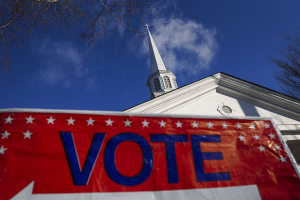The growing ignorance of the benefits of marriage — and why it’s dangerous

A large percentage of Americans don’t know or outright disagree that marriage builds stronger families and is linked to better well-being for children, according to the annual American Family Survey. This is despite the fact that such benefits have been proven time and again. These attitudes may be due in part to nearly half of all U.S. children today spending at least part of their childhood in a non-intact family.
Overall, the majority of U.S. adults have a positive view of marriage, agreeing it has benefits for individuals and society. Still, a significant portion of respondents seem unclear about the value of marriage. For example, 54% of people didn’t agree that society is better off when more people are married, with 19% disagreeing and 35% being unsure. As to the questions about family stability, 48% didn’t agree that marriage is needed to create stronger families and 46% didn’t agree that marriage makes families and children better off financially.
The ninth annual survey was conducted by Brigham Young University, the Wheatley Institute, YouGov, and Deseret News and released in December.
In most cases, about half of participants agreed at least somewhat with each of the statements about the benefits of marriage. On most of the questions, though, nearly half of survey participants were unsure what they thought about the benefits of marriage.
Researchers have well established that marriage is associated with numerous positive outcomes for both adults and children. Marriage is the factor most strongly associated with human happiness, and it is also linked with greater financial well-being and better health.
Marriage provides the best environment for children to grow and develop into thriving adults. Children raised by their married parents are much less likely to be poor; have a far lower risk of being abused; and are more likely to graduate from high school, attend college, and to experience social mobility. The share of married parents in a community is one of the greatest factors predicting social mobility for children.
Marriage is also significantly more stable than cohabiting relationships. Children born to married parents are much less likely to experience parental breakup compared to children whose parents are only living together.
Despite the numerous proven benefits of marriage, it makes sense that quite a few Americans are agnostic regarding its value. Marriage rates in the U.S. have declined precipitously during the last several decades. Unwed childbearing is the norm in many communities, and nearly half of all children in the U.S. spend at least a part of their childhood in a non-intact family. Thus, fewer Americans have been raised in homes and communities where they see examples of strong marriages.
Family instability is particularly common among Americans with less than a college education. While, in general, Americans with more education and from stable families themselves tend to reinforce traditional norms around marriage for their own children (getting married and having children within marriage), norms surrounding marriage have dwindled in many other communities. Many Americans’ increasing sense of non-judgmentalism surrounding sexual relationships has led to widespread silence on the benefits of marriage.
Our culture needs more messages about the importance of marriage. Leaders in private organizations, like churches, schools, and the media, as well as policymakers, should help people understand why marriage matters and assist them in building the knowledge and skills necessary to achieve healthy marriage relationships.
Some private organizations and policymakers are working to build and strengthen marriages in their communities using a variety of creative tools. For example, Utah just celebrated the 25th anniversary of its statewide effort to promote healthier marriages, primarily through relationship education. A handful of states have a “premarital education promotion policy” that incentivizes premarital education for engaged couples by offering a discount or waiver of the marriage license fee. A program called Communio helps churches establish and operate marriage and relationship education courses for their congregants and surrounding communities.
More work like this is needed to help rebuild a culture of marriage in America.
Originally published at The Daily Signal.
Rachel Sheffield is research fellow in welfare and family policy in the Center for Health and Welfare Policy at The Heritage Foundation. Read her research.




























